 Harbin Int'l Ice and Snow Festival opens
Harbin Int'l Ice and Snow Festival opens 'Jin' named the word of the year by cross-strait netizens
'Jin' named the word of the year by cross-strait netizens Chinese scientific expedition goes to build new Antarctica station
Chinese scientific expedition goes to build new Antarctica station
 Chinese naval escort fleet conducts replenishment in Indian Ocean
Chinese naval escort fleet conducts replenishment in Indian Ocean 17th joint patrol of Mekong River to start
17th joint patrol of Mekong River to start China's moon rover, lander photograph each other
China's moon rover, lander photograph each other Teaming up against polluters
Teaming up against polluters
SYDNEY, Jan. 7 -- The successive visit to the Yasukuni Shrine by Japanese Prime Minister Shinzo Abe and a key cabinet member last month has enraged Japan's Asian neighbors and sparked criticism from other countries including the United States, which observers see undermined regional stability and deepened the political isolation of the Japanese government from the outside world.
Peter Drysdale, emeritus professor of economics and visiting fellow in policy and governance at the Australian National University (ANU), said the move has served to greatly undermine regional stability and Abe's own domestic fortitude, leaving the United States with confirmed doubts to the viability of Abe as a partner towards regional peace.
Drysdale, wildly recognized as the leading intellectual architect of the Asia Pacific Economic Cooperation, is also head of the East Asian Bureau of Economic Research, ANU, and editor of the respected East Asia Forum (EAF).
"The immediate effect has been to greatly elevate political tensions in Northeast Asia and to raise deep anxieties about his reliability as the leader of the United States' major alliance partner in the Pacific," Drysdale said, referring to an editorial in the EAF, based out of the Crawford School of Public Policy at the ANU.
"The U.S. response was low-key but crystal clear. The United States 'is disappointed that Japan's leadership has taken an action that will exacerbate tensions with Japan's neighbors.'"
Yet about one week after Abe's visit, Japanese Internal Affairs and Communications Yoshitaka Shindo evoked regional outrage again to pay homage to the Yasukuni Shrine, the notorious memorial which bestows a religious idolatry to Japanese war dead including 14 Class-A war criminals during World War II.
These visits are universally acknowledged as a both a celebration of Japan's unresolved militaristic past and a threat to Japan's peaceful reintegration into a region that yearns for reconciliation.
Observers noted that the motives of Abe lie outside his hollow statements that refer disingenuously to a desire to show "respect to those who had lost their lives in the service of their country" and that he had "no intention of hurting the feelings of the people of China or South Korea."
ANU professor Tessa Morris-Suzuki, a historian of modern Japan and Korea, sees the timing of Abe's Yasukuni visit is significant.
"Rather than choosing one of the traditionally important days on the Shrine's calendar, Abe chose to make his symbolic gesture on Dec. 26 - the first anniversary of his own return to power. The visit, in other words, is all about Shinzo Abe, his ideology and his ambitions."
Morris-Suzuki is left to conclude that after a year marked by economic stagnation, corruption scandals and ill-health, Abe - in the words of Peter Drysdale - "has come back with a determination to stamp his mark on history and to push through his long- cherished right-wing agenda."
Abe is seen as a staunch believer in the values that the shrine represents and leads a cross-party group of parliamentarians known as the "Shinto Association of Spiritual Leadership".
Drysdale said, "His core aim is to 'escape from the post-war regime' - to reverse the liberalizing reforms introduced to Japanese politics and society in the wake of the Asia-Pacific War. 'His visit to the Yasukuni Shrine,' Morris-Suzuki concludes, 'is a very explicit expression of that aim."
China condemned Yoshitaka Shindo's visit to the shrine, pointing out that the move exposed Japan's attempts to "challenge the outcomes of the world's anti-fascist war."
Chinese Foreign Ministry spokeswoman Hua Chunying said in a statement that the "Chinese people and people of other Asian nations will not allow Japan to drive history in reverse."
"We solemnly urge Japan to reflect upon history and change course."
But damage has been done.
Kazuhiko Togo at the Kyoto Sangyo University and another respected voice within the East Asia Forum lamented the political savagery that led Abe to the Yasukuni Shrine.
Togo said, "To those who are general supporters of Abe's economic, political and foreign policy initiatives, including myself, his visit to the Yasukuni on Dec. 26 was a bombshell of disappointment and helplessness."
A visiting professor at Temple University Tokyo, Togo joined the Japanese foreign ministry in 1968 and served as Japanese ambassador to the Netherlands until 2002.
He has often said that in order to resolve the issue of Yasukuni visits in Japanese politics, the Japanese themselves need to come to terms with their own history.
"In particular, the question of Japan's war responsibility needs to be definitively addressed, and until this and other issues are resolved there needs to be a moratorium on prime ministerial visits to the Yasukuni."
A moratorium would certainly have helped Abe avoid the political quagmire he has frog-marched the region into.
"Abe's actions are beyond-words dangerous and regrettable," Togo writes in an EAF editorial.
With the Russian foreign ministry responding on Dec. 26 that " this visit cannot but evoke a sense of regret," Abe has succeeded in politically isolating the Japanese government at a time when dialogue is the only possible solution.
"Thus," Togo said, "on Dec. 26, 2013, Abe succeeded at one fell swoop in creating the encirclement of Japan by China, South Korea and Russia - the key three neighboring countries in Northeast Asia - as well as the United States, on the critical issue of historical memory."
For the region to heal, there can be no concession to historical revision.
For Abe, lighting a domestic agenda fueled by nationalism has served only to compound his international isolation, at a time when only the truth might set him free.
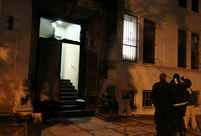 Chinese Consulate General in S.F. burned for arson attack
Chinese Consulate General in S.F. burned for arson attack Roar of J-15 fighter is melody for operator on the Liaoning
Roar of J-15 fighter is melody for operator on the Liaoning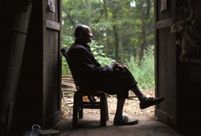 A 90-year-old forester's four decades
A 90-year-old forester's four decades Most touching moments in 2013
Most touching moments in 2013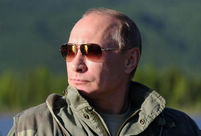 2013: Joys and sorrows of world politicians
2013: Joys and sorrows of world politicians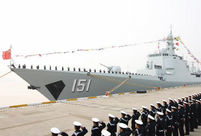 Missile destroyer Zhengzhou commissioned to Chinese navy
Missile destroyer Zhengzhou commissioned to Chinese navy China is technically ready to explore Mars
China is technically ready to explore Mars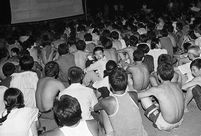 Photo story: Life changed by mobile technology
Photo story: Life changed by mobile technology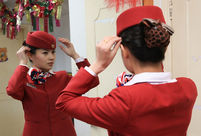 Bullet train attendants' Christmas Eve
Bullet train attendants' Christmas Eve Cradle of high-speed train CRH380A
Cradle of high-speed train CRH380A  'Red Army' division conducts winter training in N China
'Red Army' division conducts winter training in N China  Classic scenes come to life
Classic scenes come to life Harbin Int'l Ice and Snow Festival opens
Harbin Int'l Ice and Snow Festival opens  Cindy attends commercial event with her parents
Cindy attends commercial event with her parents Get to know China's national pole dancing team
Get to know China's national pole dancing teamDay|Week|Month